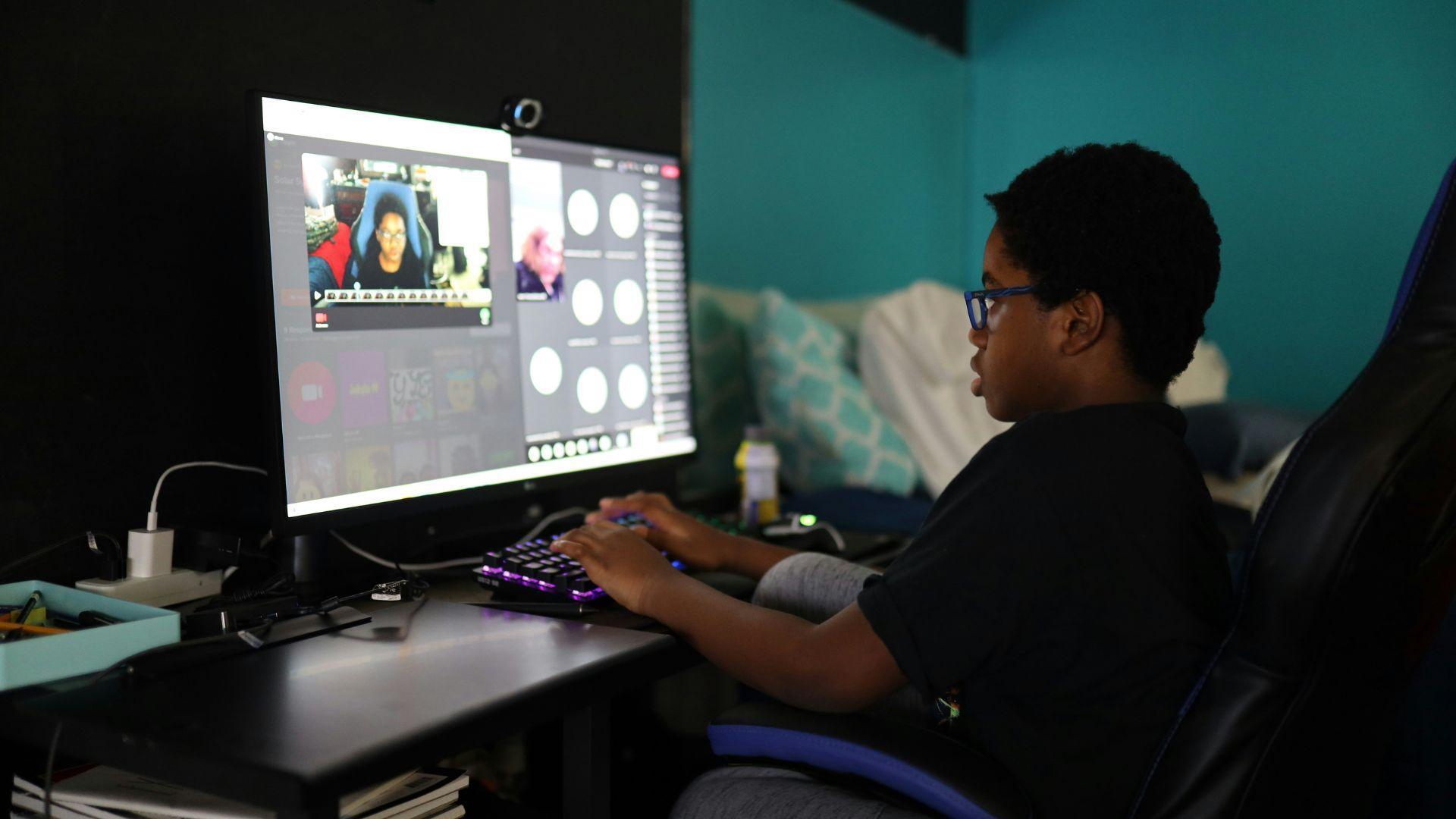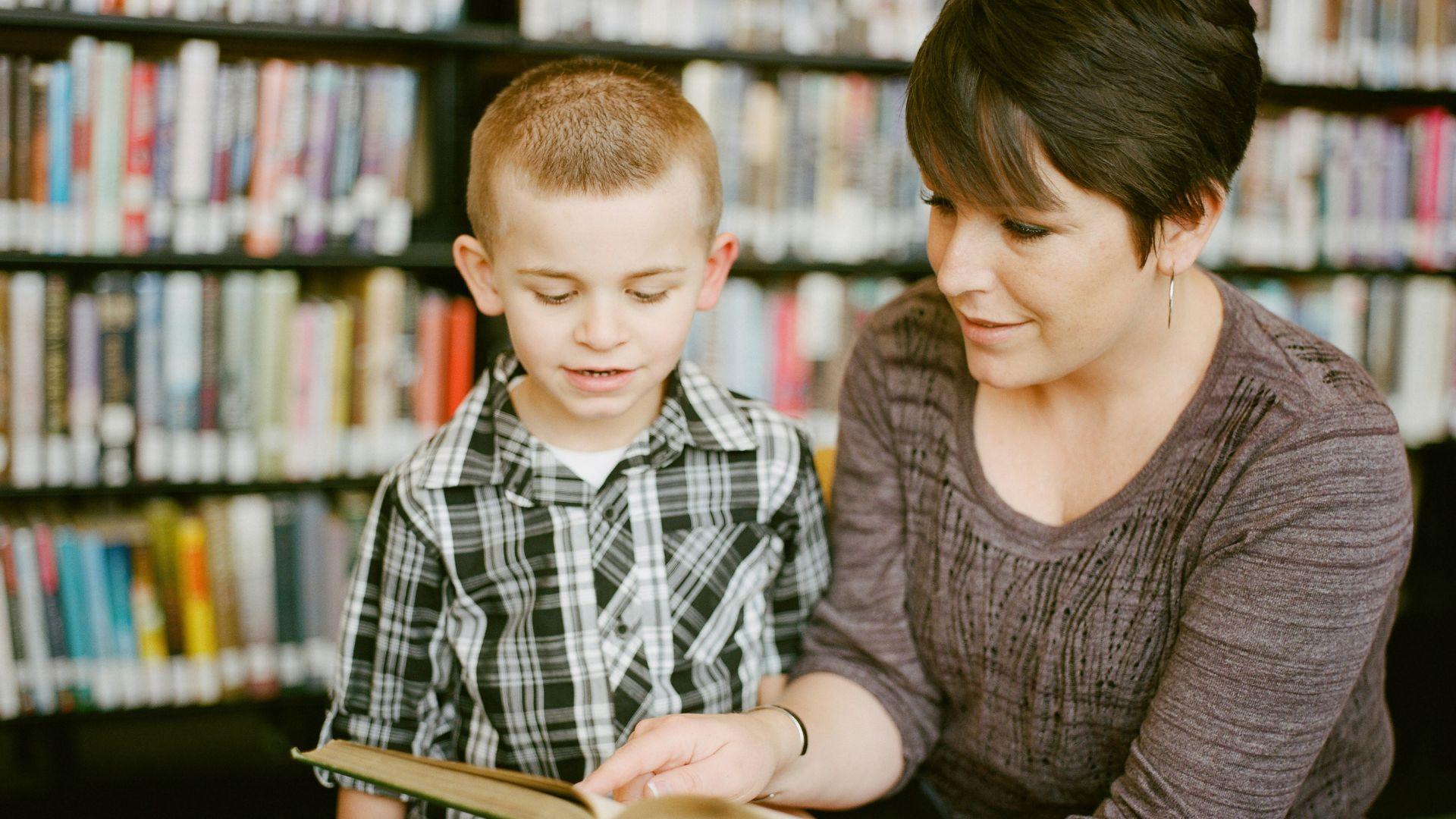Throughout the United States, many conservative groups and leaders have made an effort to ban books that they feel should not be taught, or allowed, in schools. As a result, many books that deal with health, race, and LGBTQ+ topics have been banned from certain school districts.
Now, many parents around the country are worried that these book bans may harm their child’s learning and ability to read. Parents across the political spectrum are also concerned that their students are reading at a much lower proficiency than they should be.
The Pandemic Changed Schooling

The debate over education — and what should and shouldn’t be taught in schools — took off about four years ago when schools were closed during the COVID-19 pandemic. For the first time, many parents gained an inside look at what their kids were learning.
At-home schooling allowed this window into public schooling. Some parents immediately began to voice their displeasure over what their child was being taught. Thus, things like book bans and government regulation in certain states began.
Florida’s New Teaching Standards

Many conservative groups and leaders in the U.S. quickly began to make children’s education a political talking point. Republican Florida Governor Ron DeSantis has created various headlines as he backs conservative efforts to change Florida’s teaching standards.
Under the state’s new standards, middle schoolers now learn that slaves sometimes learned beneficial skills. This standard quickly brought backlash from many — though the law still stands.
Book Bans Have Become Normal

Some parents have also made an effort to ban books that either don’t align with their own personal views, or books that they don’t believe should be in the classroom. Often, these banned books deal with race, health, discrimination, and LGBTQ+ topics.
Many organizations, such as Moms for Liberty, have also formed in the past few years to eliminate certain books from school districts. As a result of this concerted effort, book bans have become almost normal for many in the United States.
Critics Are Still Fighting Back Against Book Bans

While some conservative circles are still working to continue to ban books, many liberal groups and critics of book-banning movements are trying to fight back.
Progressive groups such as Red, Wine and Blue have said that these efforts to control what is being taught in the classroom hurt children. Many believe that these conservative groups are trying to play down focus on minority groups or historical events involving minorities.
Children Are Now Struggling To Read

During the pandemic, some parents fought to ban books and change education. Now, years later, parents across the political spectrum are growing concerned as many children are reading at a lower proficiency than they should be.
The pandemic has harmed children’s learning in schools. Now, many parents and organizations are fighting to stop the focus on book banning. Instead, they state the focus should be on ensuring their kids can even read in the first place.
Parents Unite In Major Issue

Parents and organizations have seemingly united over this issue. “Parents want to see our children read,” Jay Artis-Wright, the former leader of Parent Revolution, said. “It’s not a matter of banning a book if they can’t read it.”
According to Artis-Wright and other parents, the conservative effort to ban books and change schooling has overshadowed the fact that kids are falling behind at a fast rate.
Students Are Below Proficient Readers

Studies and statistics back up many parents’ worries. According to a recent National Assessment of Educational Progress (NAEP), more than one-third of fourth graders in the U.S. are considered below proficient readers.
Students haven’t just fallen behind in reading. They’ve also fallen behind in math, civics, and history. This statistic has also shown that fourth graders and eighth graders have seen the largest declines ever recorded in math.
Parents Worry About Pandemic Children

Since the pandemic kept many children out of the classroom for a time, many parents and teachers have long expressed their worry that this could negatively impact their overall learning. Now, many studies are showing that these worries were necessary.
“If we allow these achievement losses to become permanent, students will be paying for the pandemic for the rest of their lives, like in the form of lower college-going [and] lower earnings once they get out of college,” Tom Kane, Harvard’s Center for Education Policy Research Faculty Director, said.
Parent Outrage Overshadows Loss Of Learning

These critics of conservative groups going after various aspects of education have stated that parent outrage has greatly overshadowed children who are being left behind. For example, a recent Pew Research Center study discovered that most parents believe their child should be able to opt out of LGBTQ+ topics being discussed in school.
However, about 70% of teachers have said that LGBTQ+ topics, such as sexual orientation, have rarely or never even been brought up in the classroom. Therefore, this outrage was based on teachings that rarely happen.
Conservative Groups Also Are Concerned Over Loss Of Learning

Some conservative groups that have led the fight in favor of book bans have also publicly come out to discuss their worry over children’s lack of proficiency in reading.
“Teaching kids to read in school should not be a political issue,” Tiffany Justice, the co-founder of Moms for Liberty, said. “It is not a partisan issue and I actually think it’s the greatest national security risk that we have as Americans: a nation of people that are illiterate.”
The One Issue Parents Can Unite On

The worry over children falling behind has seemingly become the one issue parents can agree on, whether they’re conservative or liberal. As a result, some have been pushing for schools to do better and tell parents if their child is behind — sooner, rather than later.
“We’ve got to make sure parents are well informed about just whether or not their child is below grade level,” Kane said. “They can’t wait for the state tests to come back to tell them. Schools need to tell them this spring so they can sign up for the summer.”
